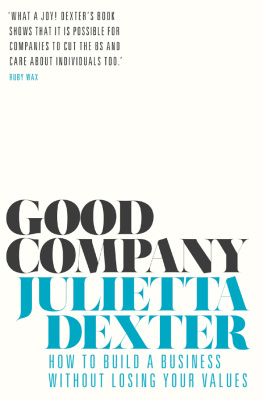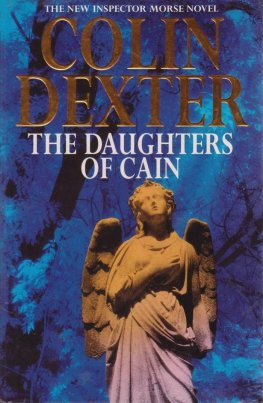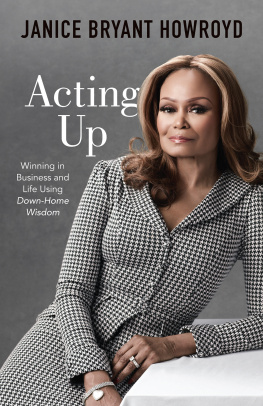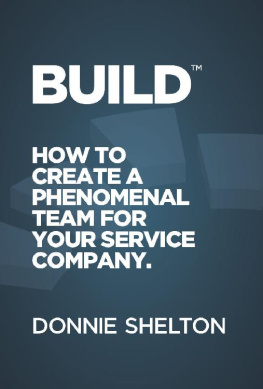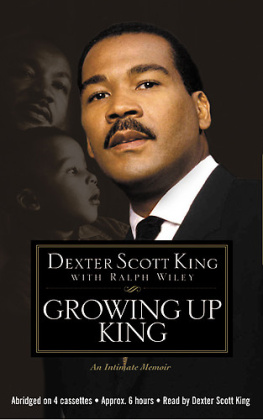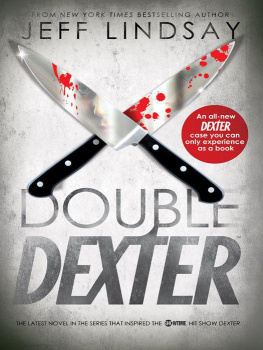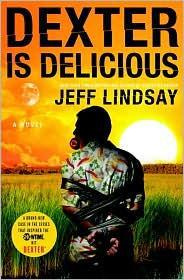Julietta Dexter - Good Company: How to Build a Business without Losing Your Values
Here you can read online Julietta Dexter - Good Company: How to Build a Business without Losing Your Values full text of the book (entire story) in english for free. Download pdf and epub, get meaning, cover and reviews about this ebook. year: 2020, publisher: Atlantic Books, genre: Home and family. Description of the work, (preface) as well as reviews are available. Best literature library LitArk.com created for fans of good reading and offers a wide selection of genres:
Romance novel
Science fiction
Adventure
Detective
Science
History
Home and family
Prose
Art
Politics
Computer
Non-fiction
Religion
Business
Children
Humor
Choose a favorite category and find really read worthwhile books. Enjoy immersion in the world of imagination, feel the emotions of the characters or learn something new for yourself, make an fascinating discovery.
- Book:Good Company: How to Build a Business without Losing Your Values
- Author:
- Publisher:Atlantic Books
- Genre:
- Year:2020
- Rating:5 / 5
- Favourites:Add to favourites
- Your mark:
- 100
- 1
- 2
- 3
- 4
- 5
Good Company: How to Build a Business without Losing Your Values: summary, description and annotation
We offer to read an annotation, description, summary or preface (depends on what the author of the book "Good Company: How to Build a Business without Losing Your Values" wrote himself). If you haven't found the necessary information about the book — write in the comments, we will try to find it.
Good Company: How to Build a Business without Losing Your Values — read online for free the complete book (whole text) full work
Below is the text of the book, divided by pages. System saving the place of the last page read, allows you to conveniently read the book "Good Company: How to Build a Business without Losing Your Values" online for free, without having to search again every time where you left off. Put a bookmark, and you can go to the page where you finished reading at any time.
Font size:
Interval:
Bookmark:


Julietta Dexter founded The Communications Store in 1995 with 600 and two clients. Two decades since, TCS has become the premier strategic brand development, communications and PR company for some of the worlds best brands in fashion, beauty and lifestyle. It has offices in London and New York. In 2017 it was named as one of the Sunday Times Top 100 Small Companies to Work For.

First published in hardback and trade paperback in Great Britain in 2020
by Atlantic Books, an imprint of Atlantic Books Ltd.
Copyright Julietta Dexter, 2020
The moral right of Julietta Dexter to be identified as the author of this work has been asserted by her in accordance with the Copyright, Designs and Patents Act of 1988.
All rights reserved. No part of this publication may be reproduced, stored in a retrieval system, or transmitted in any form or by any means, electronic, mechanical, photocopying, recording, or otherwise, without the prior permission of both the copyright owner and the above publisher of this book.
Every effort has been made to trace or contact all copyright holders. The publishers will be pleased to make good any omissions or rectify any mistakes brought to their attention at the earliest opportunity.
10 9 8 7 6 5 4 3 2 1
A CIP catalogue record for this book is available from the British Library.
Hardback ISBN: 978 1 83895 125 2
Trade paperback ISBN: 978 1 78649 720 8
E-book ISBN: 978 1 78649 721 5
Printed in Great Britain
Atlantic Books
An imprint of Atlantic Books Ltd
Ormond House
2627 Boswell Street
London
WC1N 3JZ
www.atlantic-books.co.uk
For my father,
John Dartnall Dexter CBE
The Future Is Friendly
I ve always been interested in business. I remember being very small, less than ten years old, and watching my father, the owner of an insurance company, come home with his briefcase and put his papers down on his desk; words, numbers, calculations, letters, documents and neat, meticulous, to-do lists. My father was always getting things done. He would read the newspaper in the evenings in the sitting room. I always thought it looked clever and was such a good use of time, finding out what was going on in the world, what was happening in the business community. I wanted to be like him and make intelligent use of my time, too.
My father died quite shockingly in 1991 at the age of fifty-eight while I was in my final year at the University of Cambridge. He went to sleep one night and just didnt wake up in the morning. At his funeral, hundreds of people showed up to pay their respects not only friends, family and neighbours, but all of his eighty or so employees, lots of people hed met through his business and all the other extraordinary things he did outside of work, too. He contributed a lot. It was humbling to see just how many lives hed touched in his lifetime. I am now fifty and have had more years without my father than with him. But losing him so suddenly was a personal trauma that has shaped my life, my behaviour and my thinking every day, as both a human being and as a business person.
In the year after his death, I watched my friends from university go into banking, management consultancy and graduate trainee programmes with law firms and accountancy practices Oxbridge cream-of-the-crop graduates for tomorrows job market. My route into the job market wasnt quite such a straight line. First, I went back to our familys home in Italy to help my mother with my late fathers affairs. Then I returned to London, applied for endless jobs and received forty rejections. I was pretty low and lost, to be honest.
A family friend, Charlotte de Vita (who went on to be hugely successful in the charitable field), helped me land my first job at The English-Speaking Union, a philanthropic organization that fostered good relationships between the UK and the US in the fields of art, literature, music and education, and where I had the privilege of working with a small group of great, hard-working people. From the charity sector, I went into the world of fashion and beauty communications. Those two worlds charity and PR could not have been more different. One was well-meaning, humble and under-funded. The other was insincere, vainglorious and under-handed. My early jobs as an account associate taught me everything I needed to know about how not to run a business.
I lasted a few years at what was, to me, a miserable office until I quit in protest when my boss instructed me to increase our clients fees by 30 per cent for no reason at all. Unemployed and with no idea what to do next, I got a call from a former client who wanted to know why Id left my previous job. I shared the story and confided to him that I liked being an accounts person in the communications field, but the corporate culture Id seen so far had left me demoralized. Maybe I was nave, but Id worked hard throughout my education and did my honest best for a boss who tore down my confidence on a daily basis. Was this really all the job market had to offer? Was this what Id worked so hard for?
The ex-client said, Start your own business and do it your way.
My initial reaction was to laugh. I was only twenty-five and lacked the skills and experience to start my own company. When I was a girl, my father would sometimes joke about me taking over his business someday, but I thought that was more fatherly flattery than a serious possibility. And yet, I was intrigued by the idea nonetheless, certainly enough to talk about it over dinner with that client and my then-husband. Both men were supportive and encouraging. They believed in me and felt I could actually make a go of it. So, the next day, I started jotting down some thoughts which ultimately turned into a business plan.
In retrospect, it was all a bit rash. I didnt have a lot else going on then, so there was no harm in scribbling down ideas. Doing my on-paper conceptualizing, I see now, was a brave act. A lot of dreamers with great ideas dont get that far. They just flow from one notion to the next, one dissatisfying job to the next, and never write down what theyd do on their own if they could. Fear and self-doubt are the biggest roadblocks to success. Writing a one-page, broad-strokes description of a future company is not like signing a legal contract. Its little more than doodling on a cocktail napkin. But unless someone takes that step, theyll never move forward.
Oh, I had plenty of doubts. Even as I worked on my plan, I kept asking myself, Can I really start a business? and had to stop myself from crumpling my papers into a ball and throwing them over my shoulder. What kept me going was a hunger to prove myself and defy the industry standard by founding a company that would and could break the mould of the old-fashioned business model Id seen so far, defined by short-term profit-taking, bosses who ruled by fear and intimidation, hierarchies that turned colleagues against each other and an aggressive winner-takes-all approach that encouraged unhappy workplaces. In my future company, Id change all of that, and create a safe place to take risks, with compassion guiding all aspects of the business. A part of my character works on competitive rebellion (according to my business coach). Proving to myself that I could do things differently was the motivation that kept me going.
Font size:
Interval:
Bookmark:
Similar books «Good Company: How to Build a Business without Losing Your Values»
Look at similar books to Good Company: How to Build a Business without Losing Your Values. We have selected literature similar in name and meaning in the hope of providing readers with more options to find new, interesting, not yet read works.
Discussion, reviews of the book Good Company: How to Build a Business without Losing Your Values and just readers' own opinions. Leave your comments, write what you think about the work, its meaning or the main characters. Specify what exactly you liked and what you didn't like, and why you think so.

